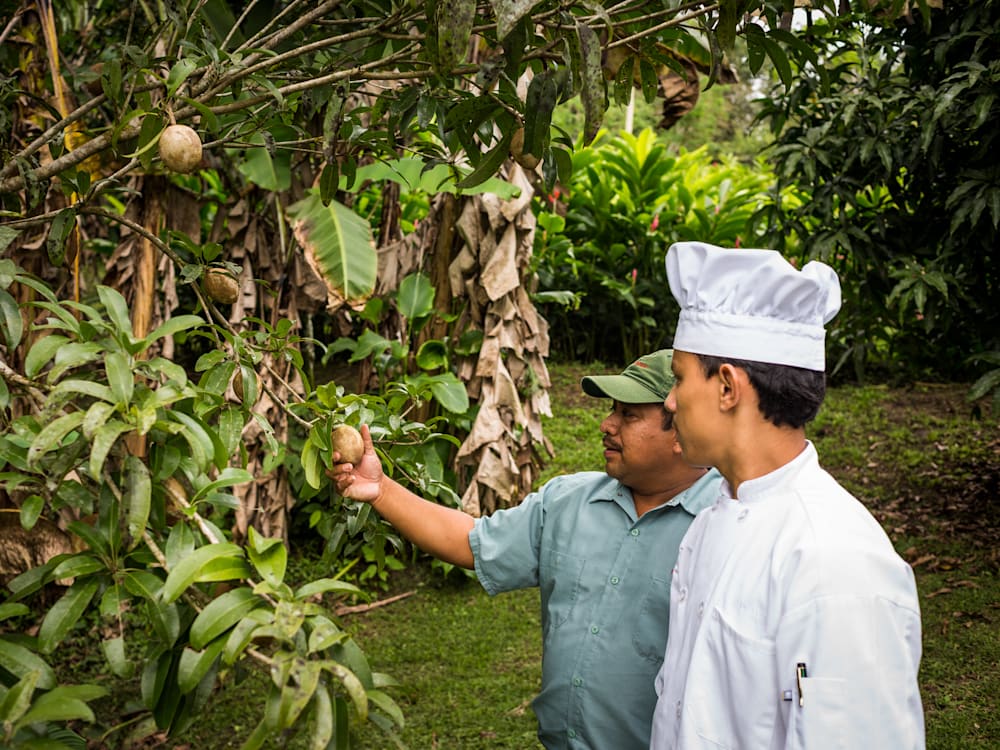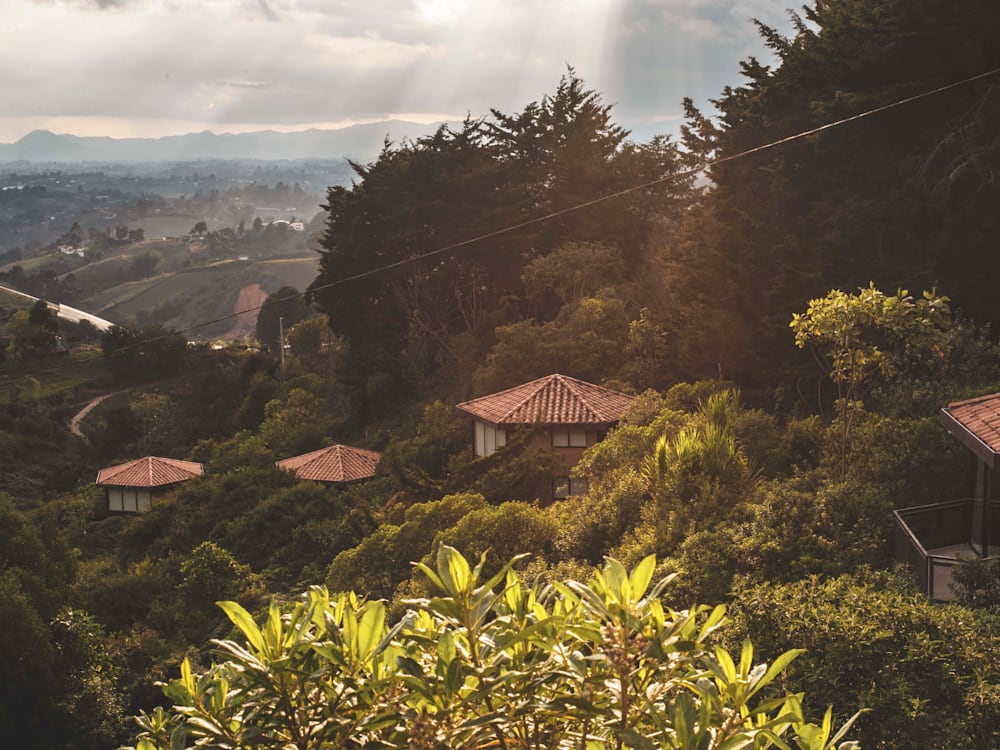Sustainability: This is the forefront of every hotelier. So it should be that the 1.4 billion night hotels recorded by the United Nations will be left globally in 2024, with a number that is only expected to increase. The Smiths may only make up a small part of this, but it’s clear that we’ve all cut the work.
There are still a lot of worth it until anyone starts to feel frustrated. At Smith, we see incredible initiatives and commitments from hotels we work with, and there is still a lot of effort to build lasting relationships with the surrounding communities. Often, success begins with building relationships on the ground, where the team knows the area like the back of the hand.
This method is so familiar World Land Trust (WLT), one of the Smiths’ charitable partners. Founded in 1989, WLT has spent more than 30 years of history to protect natural ecosystems around the world. We stressed it Previously purchased an acre project;Faced with rampant habitat loss, an initiative has secured more than 2.4 million acres of threatening territory and funded 82 reserves. Trust funds are a facilitator that empowers local organizations to have the capacity and funding that they know exactly what their environment requires. Read on to learn more about WLT’s important conservation projects in the Americas and the nearby sustainable Smith Hotel.
Costa Rica’s growing community

costa rica It is one of the first countries to enter WLT books. In 1994, the trust helped to purchase land in what is now Corcovado National Park. In addition to purchasing 4,991 acres of land, they also helped local landowners gain protection on land that they could not be fully purchased. They not only expand the scope of protection, but also benefit locals by enabling their stakeholders in the protection process. People in the region have filled new work around non-consumer use of forests, and they have promoted group tourism and passion for tropical habitats.
Smith Hotel Rio de Janeiro A similar path was taken. The Earth Retreat is the heart of the 1500-acre dry forest reserve deep in Guanacaste Province, where 30 bungalows are well concealed among the trees you barely know it is there, except for the rounded restaurant, which offers a peek at the rounded restaurant on the canopy of the forest. Offers a wealth of natural experiences, including canyons on Río Blanco, wildlife walks, stargazing and bathing in medicinal springs.
So far, so impressive. But in such a wild landscape, the surrounding community of the long-term guardian of the forest is also held accountable. In Rio Perdido, 90% of employees are recruited locally, but the commitment exceeds the reason. Thanks to the hotel’s support, local communities in San Bernardo were able to participate in the Blue Flag Eco-Project, which includes initiatives such as tropical afforestation, clean rivers, support for local artists and education for school children, ensuring today’s children have the opportunity to become protectionists tomorrow.
Preserve Belize’s ecosystem

Belize It has occupied a special place in WLT history. The trust was founded in 1989 to support the creation of Rio Bravo, a 254,000-acre reserve that includes broadleaf forests, matte forests, savannas, mangoes and ancient Mayan ruins. There is incredible biodiversity throughout the process, including rare mammals such as Geoffroy’s Spider Monkey, Baird’s Tapirs and American Manatees. In the years since, WLT has been involved in the creation of several neighboring reserves, making it the custodian of ecological treasures. The entire area is what is called the “last breath ecosystem” and if you want to avoid the ultimate rupture of delicate habitat, it means conservation is unnegotiable.
Blancaneaux Lodgeone of the Coppola family, near the reserve of Rio Bravo, is fused together in the Pine Ridge forest reserves in the south. Francis Ford Coppola visited the area in the 1980s and fell in love with the place, setting up a family retreat that is now a luxury cottage. Sustainability is baked here: the entire hotel is powered by its own hydroelectric plant, food comes from organic gardens and orchards, air conditioning is abandoned in favor of a naturally cool design plan that has been used for millennia: vaulted ceilings and thatched roofs that allow heat to be emitted throughout the day.
There are many things behind the scenes. The hotel actively supports scientists and non-governmental organizations engaged in biodiversity research, supporting the IX Jaguar project and research on the endangered Scarlet Line. Outreach is an important part of the agenda, and the hotel sponsors a viewing wildlife club at local schools where kids do fieldwork around conservation of wildlife, researching technology, habitat conservation and organic agriculture.
Education in Colombia

World Land Trust is also active in South America, where some of the world’s biodiversity countries can be found. One of these so-called “giant” countries is Colombiain the Andes cloud forests of Colombian Andes, WLT supports the creation of the Guanacas Reserve established in northern Medellin. The 1,285 acres reserve was established in 1990 by the World Land Trust Partner Fundación Guanacas Bosques de Nieblait has been regenerating the ecosystem and protecting it from cattle breeding, logging and excessive agriculture.
Fundación also provides environmental education to primary schools and employs people from local communities, some of whom are Rangers or participate in afforestation program. All of this is fused together to foster a very diverse ecosystem: Colombia has 1,866 species of birds (anywhere else on the planet), 824 amphibians, 601 reptiles and an incredible 4,270 species of orchids. Brown spider monkey, glasses bear and golden poisonous dragon frog are one of 97 rare and endangered species found in the reserve.
Canson Hanging from the valley floors of Mountaous Marinilla, the hotel is a green cabin that echoes Fundación’s attitude. Its windowed walled houses and cottages are constructed from compressed acre bricks (more than 100,000 of them) made of the soil where they reside. A live afforestation project has restored nine glorious hectares of mountainside, attracting endangered birds, frogs and other native critters, back after years of exile (they have identified 80 species of birds on the property). With a strict waste-free policy, the restaurant focuses on using non-traditional mountain plants and hyper-local, low-trash produce, most of which grow in its 8,000-square-foot vegetable garden.
It’s all very impressive, but how do locals benefit? As you might expect, the approach here is holistic. Cannúa has been providing English courses to some of its neighbors, providing life skills and new routes to work. They also held workshops on agriculture, good sustainable cultural practices and effective waste management, providing locals with tools to start their own sustainable practices. Colombia has only truly entered the international travel scene since the 2016 ceasefire between the government forces and the rebels of the Revolutionary Armed Forces of Colombia. As the country’s popularity grows and grows, initiatives such as Cannúa will help balance two ecosystems: one in nature with initiatives between business leaders, tourists and those who call it a person of inhabitant.
Smiths and his wife World Land Trust Company contributions from annual donations, and your generous contributions to our two “land” and “Sea” partner charities (Blue Ocean Foundation It’s the latter). Whenever you buy Get a room! Gift Card – If you choose Electronic gift card – You can use our Donation page Whenever you feel inclined.
For green resorts, explore our Most sustainable hotel collections







